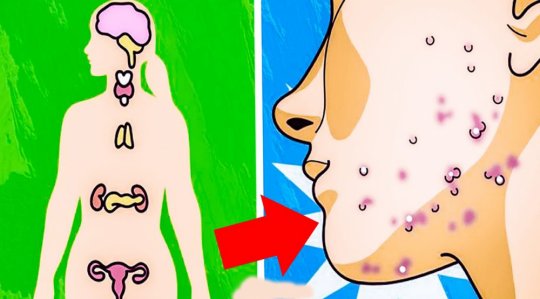Hormones play a critical role in almost every function of the human body. They are responsible for regulating metabolism, mood, sexual function, sleep, and much more. When the delicate hormonal balance is disrupted, even slightly, it can lead to a cascade of symptoms—many of which people often ignore or attribute to other causes such as stress, age, or lifestyle. In this article, we will take a closer look at several subtle yet significant symptoms of hormonal imbalance that often go unnoticed, but should never be ignored.

1. Persistent Weight Gain
One of the most common but overlooked signs of a hormonal imbalance is unexplained and persistent weight gain. Many individuals, particularly women, work hard to maintain a healthy weight through regular exercise and a balanced diet. However, in some cases, these efforts don’t lead to weight loss. Instead, the scale continues to climb. This frustrating experience may not be a result of overeating or lack of physical activity but rather an imbalance in key hormones such as insulin, cortisol, thyroid hormones, or estrogen. These hormones regulate how your body stores fat and uses energy, and any disruption can result in weight gain, especially around the midsection.
2. Abdominal Fat and Difficulty Losing It
If you find that most of your weight is accumulating around your belly and no amount of crunches or cardio seems to reduce it, your endocrine system might be under stress. Stress causes the adrenal glands to release excess cortisol, often referred to as the “stress hormone.” High cortisol levels signal the body to store fat, particularly in the abdominal area. Even worse, this kind of fat is especially stubborn and hard to get rid of. Therefore, chronic stress and cortisol imbalances can lead to a vicious cycle of hormonal disruption and increasing belly fat.
3. Low Libido
A decreased interest in sex or a fading libido is another significant indicator of hormonal imbalance, especially when it happens suddenly or without an obvious reason. Sex hormones like estrogen, progesterone, and testosterone are directly responsible for regulating sexual desire and arousal. When these hormone levels fall out of sync—due to menopause, stress, or even poor diet—the result can be a dramatic drop in libido. Often, people write this off as a psychological issue or simply “getting older,” but it’s frequently rooted in hormonal changes.
4. Fatigue and Chronic Exhaustion
Do you feel tired all the time, even after a full night’s sleep? This kind of unrelenting fatigue should not be brushed off or blamed entirely on a busy schedule or work stress. Hormonal imbalances, particularly involving the adrenal, thyroid, or insulin-regulating hormones, can significantly impact your energy levels. For instance, hypothyroidism—where the thyroid gland is underactive—can make even simple daily tasks feel exhausting. Similarly, adrenal fatigue, a condition resulting from chronic stress, can leave you feeling constantly drained.
5. Mood Swings, Irritability, and Depression
Emotional instability is often seen as a mental health issue, but what many don’t realize is that hormones play a crucial role in regulating your mood. Sudden feelings of anxiety, unexplained sadness, irritability, or depressive episodes can all be linked to imbalances in hormones like estrogen, progesterone, and cortisol. In women, this is especially noticeable before menstruation, during pregnancy, or approaching menopause. These emotional fluctuations aren’t “just in your head”—they could be biochemical reactions caused by a hormonal misfire.
6. Insomnia or Difficulty Sleeping
A good night’s sleep is essential for hormonal health, yet it’s also one of the first things to be disrupted when hormones are out of balance. Difficulty falling asleep or staying asleep can be linked to high cortisol levels, low progesterone, or imbalances in melatonin production. Chronic insomnia is not just a sleep problem—it can also worsen hormonal imbalance by preventing the body from restoring itself overnight.
7. Digestive Issues Like Bloating or Diarrhea
Frequent digestive troubles such as bloating, constipation, gas, or even diarrhea can be more than just dietary issues. Your digestive system is closely connected to your hormone levels, particularly estrogen. For example, too much or too little estrogen can disrupt gut health, alter bowel movements, and lead to chronic gastrointestinal discomfort. This often leads to a misdiagnosis of IBS (Irritable Bowel Syndrome) when the real issue lies with the endocrine system.
8. Poor Nutrient Absorption and Food Sensitivities
Along with noticeable digestive symptoms, a hormonal imbalance can interfere with the proper breakdown and absorption of nutrients. Over time, this may lead to deficiencies in key vitamins and minerals—especially those related to reproductive and thyroid health. This can further fuel the imbalance, creating a cycle that is hard to break without professional help.
Final Thought: Listen to Your Body
Many of these symptoms seem like isolated physical or emotional problems. But in truth, they often point to something deeper—an imbalance in the body’s hormonal system. Whether it’s unexplained weight gain, constant fatigue, low libido, or digestive issues, it’s important not to ignore the signs your body is giving you. By recognizing and addressing hormonal imbalances early on, you can restore not only your physical health but also your emotional and mental well-being.
If you suspect you may be dealing with a hormonal imbalance, consult a healthcare provider who can help you with proper testing and a treatment plan tailored to your needs. Don’t wait until these “minor” symptoms evolve into bigger health challenges.


















